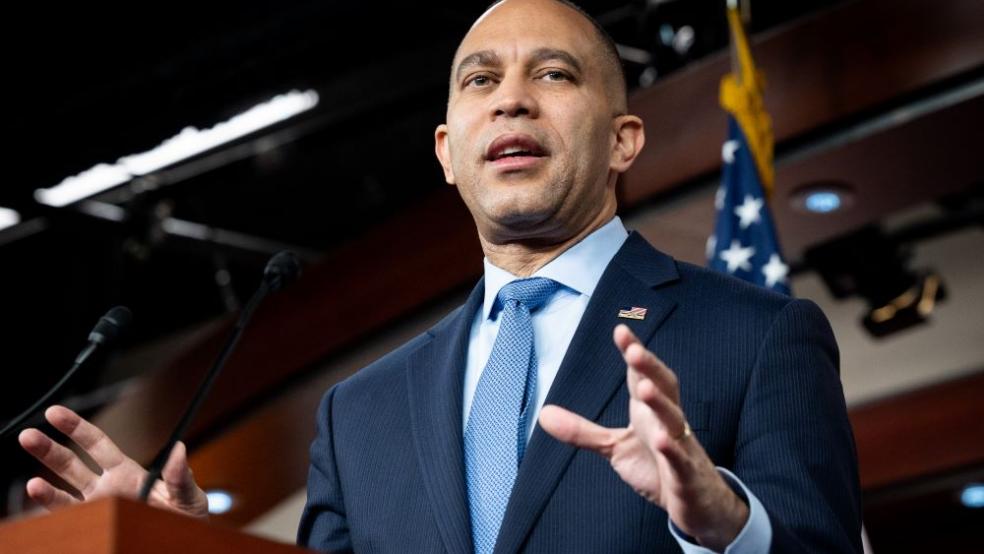House Minority Leader Hakeem Jeffries (D-NY) on Thursday poured cold water on a plan circulating among some Democratic lawmakers to pass a “clean” debt limit increase by using a parliamentary procedure called a discharge petition, which allows a bill to receive a floor vote under specific circumstances. Noting that Republicans voted to raise the debt ceiling three times under former President Donald Trump, Jeffries instead called on GOP lawmakers to do so again under the leadership of Speaker Kevin McCarthy (D-CA).
“The most viable option right now is for the extreme MAGA Republicans in the House to get their act together and do what they consistently did when Donald Trump was the president of the United States of America,” Jeffries told reporters at a press conference.
As The Hill’s Alexander Bolton explains, a discharge petition is a difficult parliamentary maneuver that requires collecting 218 signatures, so a handful of Republicans would need to back the plan assuming all 213 Democrats supported it. The bill would need to sit in committee for 30 legislative days, which could take months to play out. And restrictions on how and when the bill can be introduced make the procedure that much more difficult.
In the end, Jeffries said the problem is in the hands of the GOP. “Right now, the option that is in front of us are the extreme MAGA Republicans doing the right thing by the American people,” he said.
Accompanied by Senate Majority Leader Chuck Schumer (D-NY), Jeffries also presented the conclusions of a report by Democrats on the Joint Economic Committee that show just how damaging a debt default would be. According to the analysis, a default on U.S. debt could reduce the value of retirement savings for the average worker by $20,000 due to a sharp drop in the stock market. New home buyers would pay an extra $54,000 on their mortgages as a result of higher interest rates, and the lifetime cost of an average loan on a new car would rise by $800.




